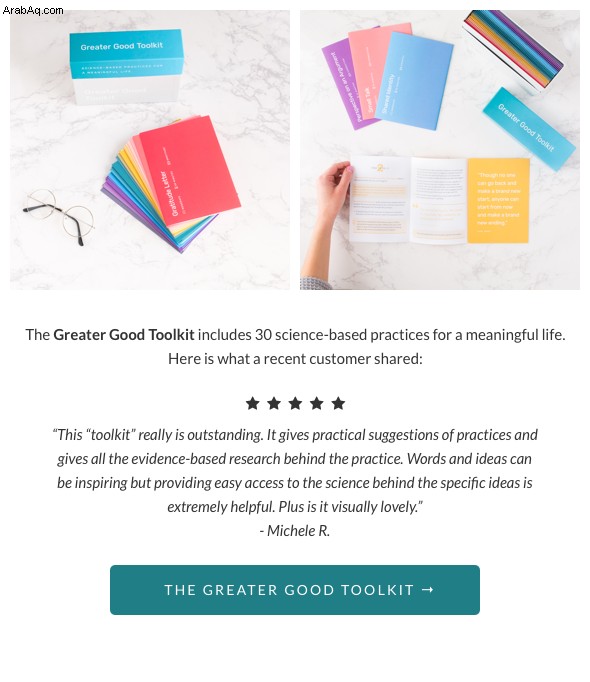يتشكل كل جيل من المراهقين من خلال الأحداث الاجتماعية والسياسية والاقتصادية اليومية. المراهقون اليوم ليسوا مختلفين - وهم الجيل الأول الذي تشبع حياته بتكنولوجيا الهاتف المحمول ووسائل التواصل الاجتماعي.
في كتابها الجديد ، تستخدم عالمة النفس جين توينجي استطلاعات واسعة النطاق لرسم صورة مفصلة لعشر صفات تجعل من المراهقين اليوم فريدين من نوعه والقوى الثقافية التي تشكلهم. النتائج التي توصلت إليها هي بدورها مثيرة للقلق وغنية بالمعلومات ومدهشة وثاقبة ، مما جعل الكتاب - iGen:لماذا يكبر أطفال اليوم فائقو الاتصال بشكل أقل تمردًا وأكثر تسامحًا وأقل سعادة - وغير مستعدين تمامًا لمرحلة البلوغ - وماذا هذا؟ يعني لبقيتنا —قراءة مهمة لأي شخص مهتم بحياة المراهقين.
من هم iGens؟


يسمي Twenge الجيل الذي ولد بين عامي 1995 و 2012 "iGens" لاستخدامه في كل مكان لجهاز iPhone ، وتقييمه للفردانية ، وسياقه الاقتصادي من عدم المساواة في الدخل ، وشموليته ، وغير ذلك.
تحدد صفاتهم الفريدة من خلال تحليل أربعة استطلاعات تمثيلية على المستوى الوطني لـ 11 مليون مراهق منذ الستينيات. هذه الاستطلاعات ، التي طرحت نفس الأسئلة (وبعض الأسئلة الجديدة) للمراهقين عامًا بعد عام ، تسمح بإجراء مقارنات بين Boomers و Gen Xers و Millennials و iGens في نفس الأعمار تمامًا. بالإضافة إلى تحديد الاتجاهات عبر الأجيال في هذه الاستطلاعات ، تختبر Twenge استنتاجاتها مقابل استطلاعات المتابعة الخاصة بها ، والمقابلات مع المراهقين ، والنتائج من الدراسات التجريبية الأصغر. فيما يلي عدد قليل من استنتاجاتها.
تتمتع iGens بصحة عاطفية أضعف بفضل الوسائط الجديدة. وجدت Twenge أن وسائل الإعلام الجديدة تجعل المراهقين أكثر وحدة وقلقًا واكتئابًا ، وتقوض مهاراتهم الاجتماعية وحتى نومهم.
كتب Twenge:"نشأ iGens مع الهواتف المحمولة ، وكان لديه صفحة على Instagram قبل أن يبدأوا دراستهم الثانوية ، ولا يتذكرون وقتًا قبل الإنترنت". يقضون خمس إلى ست ساعات يوميًا في إرسال الرسائل النصية والدردشة والألعاب وتصفح الويب وتدفق مقاطع الفيديو ومشاركتها والتسكع عبر الإنترنت. بينما راوغ المراقبون الآخرون بشأن التأثير ، فإن Twenge واضح:أكثر من ساعتين في اليوم يزيد من خطر الإصابة بمشاكل صحية عقلية خطيرة.
تستخلص هذه الاستنتاجات من خلال إظهار كيف أن الارتفاع الوطني في مشاكل الصحة العقلية للمراهقين يعكس تغلغل أجهزة iPhone في السوق - وكلاهما يشهد ارتفاعاً في عام 2012. هذه بيانات ارتباطية ، لكن التفسيرات المتنافسة مثل الضغط الأكاديمي المتزايد أو الركود العظيم لا يبدو أنها شرح مشاكل الصحة العقلية للمراهقين. وتشير الدراسات التجريبية إلى أنه عندما يتخلى المراهقون عن Facebook لفترة أو يقضون وقتًا في الطبيعة بدون هواتفهم ، على سبيل المثال ، يصبحون أكثر سعادة.
تكتب أن عواقب الصحة العقلية حادة بشكل خاص بالنسبة للمراهقين الأصغر سنًا. هذا منطقي من الناحية التنموية ، لأن بداية البلوغ تؤدي إلى سلسلة من التغييرات في الدماغ التي تجعل المراهقين أكثر عاطفية وأكثر حساسية لعالمهم الاجتماعي.
يوضح Twenge أن استخدام وسائل التواصل الاجتماعي يعني أن المراهقين يقضون وقتًا أقل مع أصدقائهم شخصيًا. في الوقت نفسه ، يخلق المحتوى عبر الإنترنت توقعات غير واقعية (حول السعادة وصورة الجسد والمزيد) والمزيد من الفرص للشعور بالإهمال - والتي يعرف العلماء الآن أن لها تأثيرات مشابهة للألم الجسدي. قد تكون الفتيات معرضات للخطر بشكل خاص ، لأنهن يستخدمن وسائل التواصل الاجتماعي أكثر ، ويبلغن عن شعورهن بالإهمال أكثر من الأولاد ، ويبلغن عن ضعف معدل التنمر عبر الإنترنت مثل الفتيان.
تقول توينجي إن وسائل التواصل الاجتماعي تخلق "وباء من الألم".
تنمو iGens بشكل أبطأ. يبدو أيضًا أن iGens أكثر ترددًا في النمو. هم أكثر عرضة من الأجيال السابقة للتسكع مع والديهم ، وتأجيل ممارسة الجنس ، ورفض رخص القيادة.
يطرح Twenge فرضية رائعة لشرح هذا - وهي فرضية معروفة في العلوم الاجتماعية ولكن نادرًا ما يتم مناقشتها خارج الأوساط الأكاديمية. تجادل نظرية تاريخ الحياة بأن مدى سرعة نمو المراهقين يعتمد على تصوراتهم عن بيئتهم:عندما يُنظر إلى البيئة على أنها معادية وتنافسية ، يتخذ المراهقون "استراتيجية حياة سريعة" ، ويكبرون بسرعة ، ويكوِّنون أسرًا أكبر في وقت مبكر ، ويركزون على البقاء على قيد الحياة . في المقابل ، تحدث "إستراتيجية الحياة البطيئة" في بيئات أكثر أمانًا وتسمح باستثمار أكبر في عدد أقل من الأطفال - مزيد من الوقت لدروس كرة القدم في مرحلة ما قبل المدرسة ودروس الكمان في رياض الأطفال.
تقول توينجي:"ينمو الشباب من كل مجموعة عرقية ومنطقة وطبقة بشكل أبطأ" ، وهي ظاهرة لا تناصرها ولا تحكم عليها. However, employers and college administrators have complained about today’s teens’ lack of preparation for adulthood. In her popular book, How to Raise an Adult , Julie Lythcott-Haims writes that students entering college have been over-parented and as a result are timid about exploration, afraid to make mistakes, and unable to advocate for themselves.
Twenge suggests that the reality is more complicated. Today’s teens are legitimately closer to their parents than previous generations, but their life course has also been shaped by income inequality that demoralizes their hopes for the future. Compared to previous generations, iGens believe they have less control over how their lives turn out. Instead, they think that the system is already rigged against them—a dispiriting finding about a segment of the lifespan that is designed for creatively reimagining the future.
iGens exhibit more care for others. iGens, more than other generations, are respectful and inclusive of diversity of many kinds. Yet as a result, they reject offensive speech more than any earlier generation, and they are derided for their “fragility” and need for “trigger warnings” and “safe spaces.” (Trigger warnings are notifications that material to be covered may be distressing to some. A safe space is a zone that is absent of triggering rhetoric.)
Today’s colleges are tied in knots trying to reconcile their students’ increasing care for others with the importance of having open dialogue about difficult subjects. Dis-invitations to campus speakers are at an all-time high, more students believe the First Amendment is “outdated,” and some faculty have been fired for discussing race in their classrooms. Comedians are steering clear of college campuses, Twenge reports, afraid to offend.
The future of teen well-being
 iGen:Why Today’s Super-Connected Kids Are Growing Up Less Rebellious, More Tolerant, Less Happy—and Completely Unprepared for Adulthood—and What That Means for the Rest of Us (Atria Books, 2017, 352 pages)" /> iGen:Why Today’s Super-Connected Kids Are Growing Up Less Rebellious, More Tolerant, Less Happy—and Completely Unprepared for Adulthood—and What That Means for the Rest of Us (Atria Books, 2017, 352 pages)
iGen:Why Today’s Super-Connected Kids Are Growing Up Less Rebellious, More Tolerant, Less Happy—and Completely Unprepared for Adulthood—and What That Means for the Rest of Us (Atria Books, 2017, 352 pages)" /> iGen:Why Today’s Super-Connected Kids Are Growing Up Less Rebellious, More Tolerant, Less Happy—and Completely Unprepared for Adulthood—and What That Means for the Rest of Us (Atria Books, 2017, 352 pages)
Social scientists will discuss Twenge’s data and conclusions for some time to come, and there is so much information—much of it correlational—there is bound to be a dropped stitch somewhere. For example, life history theory is a useful macro explanation for teens’ slow growth, but I wonder how income inequality or rising rates of insecure attachments among teens and their parents are contributing to this phenomenon. And Twenge claims that childhood has lengthened, but that runs counter to data showing earlier onset of puberty.
So what can we take away from Twenge’s thoughtful macro-analysis? The implicit lesson for parents is that we need more nuanced parenting. We can be close to our children and still foster self-reliance. We can allow some screen time for our teens and make sure the priority is still on in-person relationships. We can teach empathy and respect but also how to engage in hard discussions with people who disagree with us. We should not shirk from teaching skills for adulthood, or we risk raising unprepared children. And we can—and must—teach teens that marketing of new media is always to the benefit of the seller, not necessarily the buyer.
Yet it’s not all about parenting. The cross-generational analysis that Twenge offers is an important reminder that lives are shaped by historical shifts in culture, economy, and technology. Therefore, if we as a society truly care about human outcomes, we must carefully nurture the conditions in which the next generation can flourish.
We can’t market technologies that capture dopamine, hijack attention, and tether people to a screen, and then wonder why they are lonely and hurting. We can’t promote social movements that improve empathy, respect, and kindness toward others and then become frustrated that our kids are so sensitive. We can’t vote for politicians who stall upward mobility and then wonder why teens are not motivated. Society challenges teens and parents to improve; but can society take on the tough responsibility of making decisions with teens’ well-being in mind?
The good news is that iGens are less entitled, narcissistic, and over-confident than earlier generations, and they are ready to work hard. They are inclusive and concerned about social justice. And they are increasingly more diverse and less partisan, which means they may eventually insist on more cooperative, more just, and more egalitarian systems.
Social media will likely play a role in that revolution—if it doesn’t sink our kids with anxiety and depression first.






